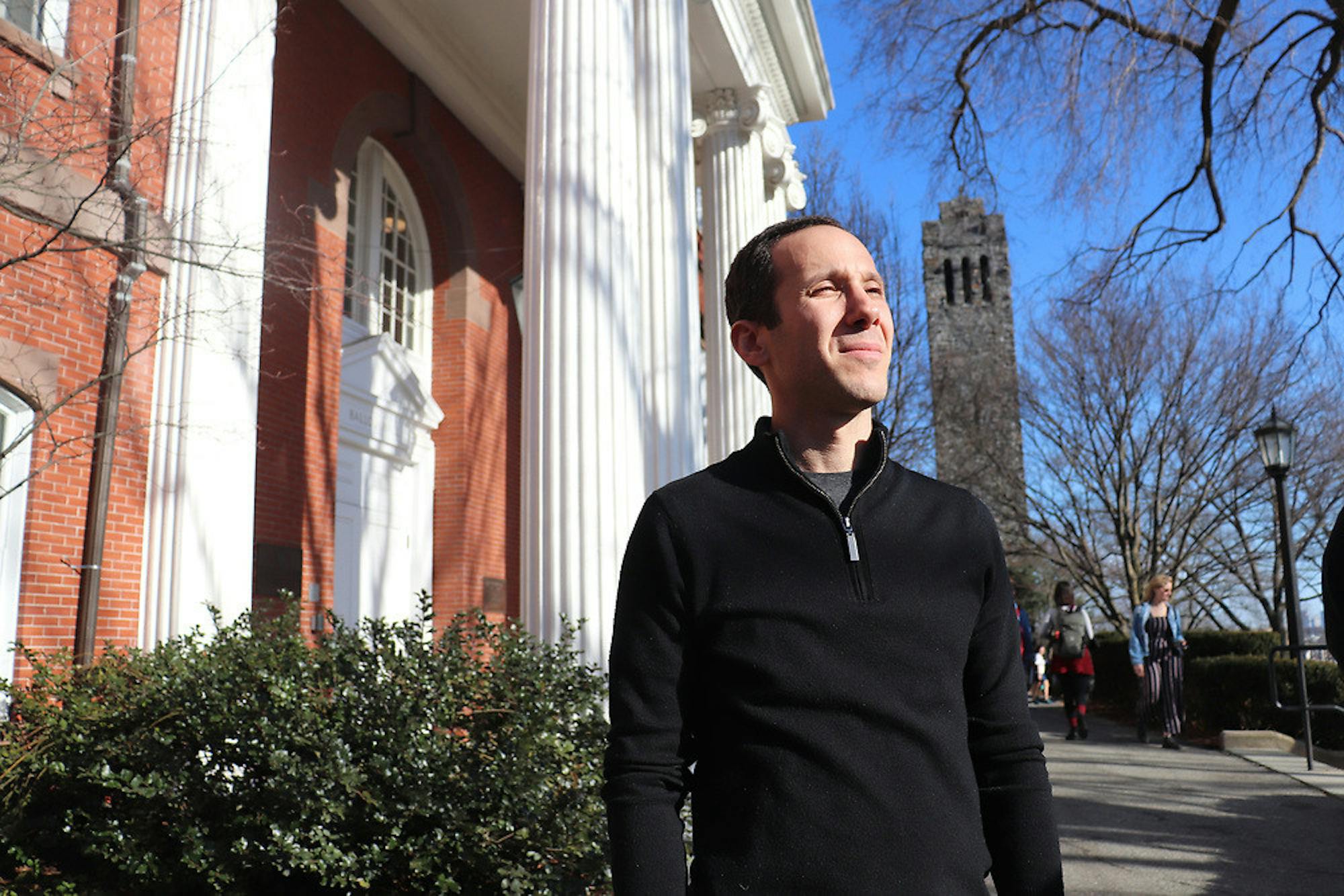The Center for State Policy Analysis (cSPA)launched on Feb. 13, housed within the Jonathan M. Tisch College of Civic Life at Barnum Hall. As the name implies, the new center will focus its work on state-level policymaking in the commonwealth.
Evan Horowitz, the center’s inaugural executive director, says the cSPA will provide independent analysis of legislation being considered in the statehouse as well as state ballot initiatives, taking the federal Congressional Budget Office (CBO) as its model.
“People have been talking about having a CBO-like organization for the state for decades,” Horowitz said. “We are now operating, undertaking research, trying to provide some additional research capacity for the state legislature.”
The center will prioritize analyzing high-impact pieces of legislation, which are currently being debated, according to Horowitz.
The new director also hopes to produce reports on issues being put out to voters as ballot initiatives, an area of policy-making Horowitz said is underappreciated.
“We have major pieces of legislation that get passed through the ballot rather than through lawmakers, and there’s no group currently dedicated to providing analysis of ballot initiatives,” he said.
Horowitz wants the center to publish between six and eight reports a year. He has already begun work on the first two projects, which includes a look at a proposal to create a regional carbon market that will come out by early April.
Alan Solomont, dean of Tisch College, hailed the center as a way to further engage the university and its students with community, elevating Tufts’ role in state decision-making while providing opportunities to faculty and students.
“It’s part of the civic responsibility of the university, not to take a position, but to really support something that will, we think, enhance the conversation about state policy in Massachusetts,” he explained.
Solomont also praised Horowitz as a capable leader for the new center.
“He has a real skill being able to translate technical matters having to do with the economy or having to do with policy in a way that could be clearly understood by folks,” Solomont said.
Horowitz got his start as a professor of literature before moving to Boston and becoming the director of communications at the Massachusetts Budget and Policy Center, another think tank. He is perhaps best known as a data journalist at the Boston Globe where he wrote the newspaper’s “Quick Study” column for four years.
Horowitz is currently the center’s only employee, and while he hopes to hire a handful of other staff members, the cSPA plans to stay small. The center will work with outside experts and researchers on a case-by-case basis, including Tufts professors if possible.
Solomont said that this flexible model — which maximizes the potential for interaction between faculty and the center — was another reason he was attracted to the idea.
Even with just one staff member, the cSPA has brought on a number of high-profile members for its board of directors, including former Massachusetts Governors Michael Dukakis, a Democrat, and Jane Swift, a Republican, as well as leaders from the private sector and academia like Solomont.
The center’s financing reflects the diverse nature of the board, and Horowitz is seeking donations from foundations as well as the private sector, following the guiding principle of non-partisanship.
“[Funding] is going to come from a diverse group of sources; it has to,” he said. “The minute you start getting your funding all from right-leaning groups or left-leaning groups, it’s very hard to protect the integrity of your output.”
Horowitz also intends to make all donation information public.
Marie-Frances Rivera, the president of the Massachusetts Budget and Policy Center, where Horowitz once worked, explained that fundraising can sometimes be a challenge for organizations like hers and the cSPA because donors may prefer direct service organizations or political campaigns over objective analysis.
However, she says that especially in Massachusetts, funders tend to understand the need for policy research and government transparency and are willing to put money behind it.
That need is certainly present in the state, as Rivera explained that the demand for research currently exceeds the amount her organization and others can provide, and that the center at Tufts represents a new and welcome addition to the conversation.
Much like Horowitz, she pointed to ballot initiatives as an increasingly important yet relatively understudied area of policymaking where the cSPA could step in and make its voice heard.
“I do think there’s a void there that the Center for State Policy Analysis could fill,” she said.
Horowitz would like to see the center interact with students on campus, potentially through internships or other opportunities, though there are no concrete plans for it at the moment.
Solomont shares that vision. He hopes that the center will not only offer students research opportunities, but also get students engaged with state government and how it impacts Tufts and the surrounding communities.
“This is basically the antithesis of the university as an ivory tower,” he said, “We don’t believe in that model ... we think that part of what a university ought to do is play a role in the world.”
New policy think tank established at Tisch College

Evan Horowitz, the newly named director of the Center for State Policy Analysis at the Jonathan M. Tisch College for Civic Life, poses for a picture outside Ballou Hall on Feb. 24.





